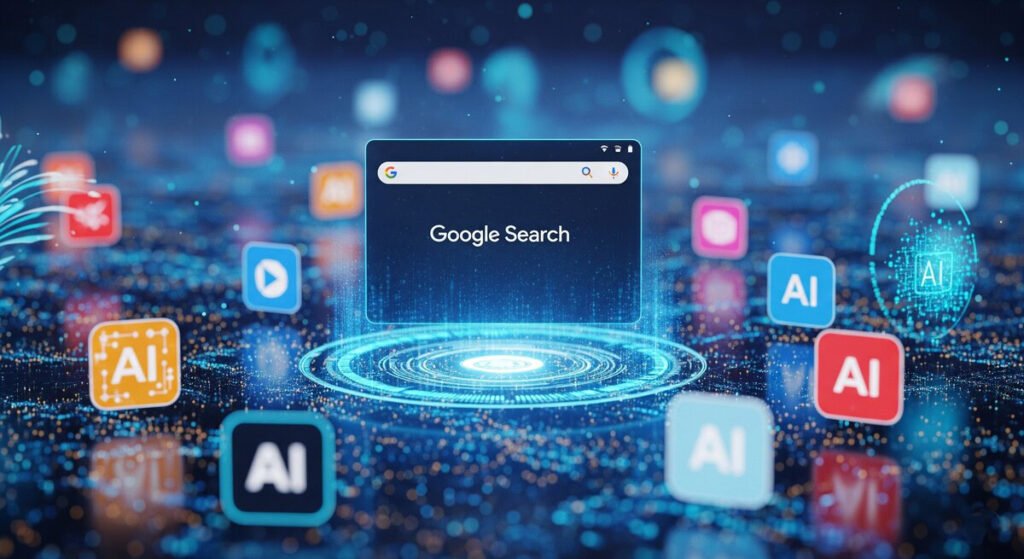

For many of us, the internet means search engines. We type a question, and a world of information appears. But with the rapid rise of AI chatbots, a new question has emerged: are these AI-powered conversational platforms starting to replace our trusted search engines, or are they simply carving out their own digital space? A recent traffic analysis sheds some light on this matter.
AI’s explosive growth is not yet replacing classic search engines
The latest study comes from OneLittleWeb. The report’s conclusions reflect that AI chatbots are experiencing explosive growth. Between April 2024 and March 2025, the top 10 AI chatbots saw their traffic surge to 55.2 billion visits. This translates to an impressive 80.92% year-over-year increase from the 30.5 billion visits recorded in the previous year.
However, before we declare a new king of the web, there are things to consider. For example, during the same period, the top 10 search engines recorded a staggering 1.86 trillion visits. Even with the chatbots’ rapid acceleration, their total traffic still amounts to just 1/34th of the web traffic driven by search engines. This clearly shows that search engines continue to dominate in scale, driving significantly more daily and monthly web usage. And, of course, Google is still the absolute king in this field.
Not even ChatGPT is close to Google in traffic
Looking closer at the big players, ChatGPT remains the leader among AI chatbots. OpenAI’s chatbot accounted for 47.7 billion visits from April 2024 to March 2025—a 67.09% growth. But despite this impressive performance, Google alone still saw 1.63 trillion visits during that time, meaning it handled 26 times more traffic than ChatGPT.

This wide gap underlines that people still rely heavily on traditional search for their everyday browsing needs. Interestingly, search engine traffic saw a minor dip of 0.51% overall. However, it’s important to note that some search engines, like Microsoft Bing and Yandex, actually experienced growth. Bing saw a 27.77% increase in traffic, and Yandex grew by 32.65%.
The study suggests that search engine traffic is “bouncing back” as AI gets integrated into search features. Google’s AI Overviews and AI Mode are an example of how search engines and artificial intelligence work together.
More AI platforms rising in popularity
The chatbot world also saw some incredible individual success stories. Newer tools like DeepSeek and Grok exploded in popularity. DeepSeek grew by over 100,000%, and Grok by an astonishing 350,000% from the previous year.
In conclusion, the data paints a clear picture: AI chatbots are experiencing rapid, undeniable growth. More and more they are finding their place in our daily routines. However, they are not fully displacing search engines. Instead, they appear to be growing alongside them, showing how both powerful tools coexist to serve different user needs. So, at least for now, traditional search remains the undisputed titan of web traffic.
The post AI Chatbots See Massive Growth But Google Still Reigns Supreme appeared first on Android Headlines.

